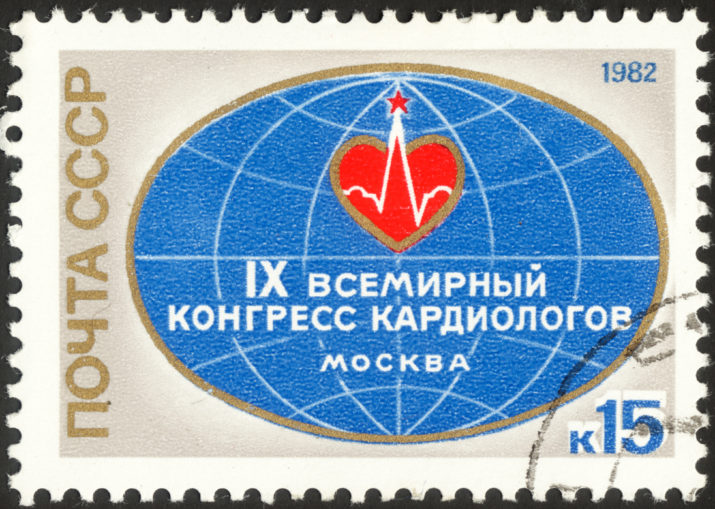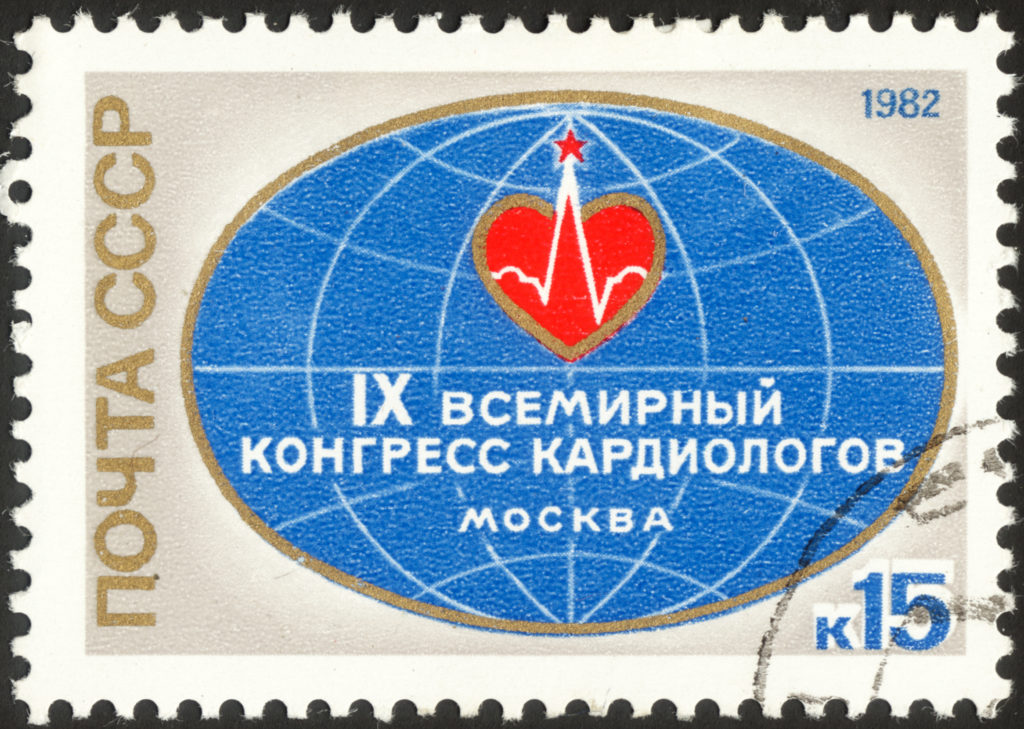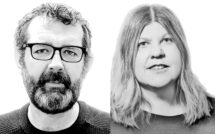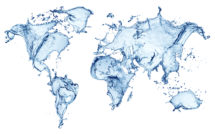

This is part of our Campus Spotlight on the University of North Carolina at Chapel-Hill.
The idea for “Living, Healing, and Dying in Russia, “a jointly created and co-taught course, came about through conversations the authors, colleagues from UNC and Duke, respectively, had about their shared interests. They both address the ends of the life cycle: Michele Rivkin-Fish, a cultural anthropologist specializing in reproductive health care and politics in Russia, writes about fertility politics, childbirth care, and abortion; Jehanne Gheith, a literary scholar, writes about hospice and dying in Russia. Both have interests in diverse disciplinary approaches: in addition to ethnographic methods, Rivkin-Fish is interested in literature, memoir, and film. Gheith has done extensive work in oral history as well as in literary analysis. She is also a professional social worker and bereavement counselor. The course delves into the ways humanistic analyses of health issues in a regional context can enrich our understandings of both cultural and public health related processes. The course was advertised among students focused on both the Eurasian region and pre-health professional studies (medical anthropology, bioethics, health humanities).
ANTH 690: Living, Healing, and Dying in Russia (Fall 2016)
This course explores the ways historical, cultural, and political forces shape major moments of the life course and the stories told to make sense of them. Specifically, we examine the changing experiences and representations of living, suffering, healing, and dying in Russia through key moments of the twentieth and twenty-first centuries. Team taught by a professor of literature and a professor of anthropology, we will focus on literary and ethnographic texts as windows onto cultural values, concerns, and debates that have shaped everyday life in Russia. Topics include family life, sexuality, childbearing and its prevention; biomedical health care and alternative healing; survival and the struggle for dignity in gulag (concentration camp) conditions; and care for the dead and dying. By examining compelling works from a range of genres—the short story, the ethnographic case study, the memoir, and the novel—students will learn analytical techniques from both fields, and hone their interpretive and writing skills. Knowledge of Russian is not required.
READINGS are listed below. Books are available at Student Stores; articles and essays are either available electronically on our Sakai site.
COURSE REQUIREMENTS
Class participation: This is a seminar-based discussion; your consistent attendance and thoughtful participation are key to making the seminar a success! Unformed thoughts, questions, expressions of confusion are all welcome. We look forward to learning from each other. 10%
3 Written Reading Responses (RRs) on questions related to the class readings. You will choose the weeks you will hand in the RRs for credit. Each RR should be a total of 400-600 words maximum and is due at the start of class. (5% each): 15%
Discussion leadership (1x/semester). Students will lead class discussion by making an oral presentation (approx. 10 min) that highlights key themes in the week’s readings and serves as our session’s jumping off point for class discussions. Students will also upload a list of approximately 4-6 questions on the readings to our class Sakai site by Monday at midnight: 10%
First mid-term paper, approximately 5-7 pages. Due Friday, Sept. 30 by 5:00pm: 15%
Second paper, approximately 5-7 pages Due Sunday, Nov. 20 by 5:00 pm: 20%
Final paper 10-12 pages. Due Saturday, Dec. 10 by 5:00pm: 30%
Suggested topics for the mid-term papers will be presented to students and discussed prior to the due dates. Students will propose topics for their final papers in writing no later than the start of class on Tuesday, Nov. 22 and will receive feedback from Professors shortly thereafter, to firm up their final paper topics.
COURSE SCHEDULE
Living
Aug. 23 Introduction to the Course (UNC)
August 30 Introduction to the Joint UNC- Duke Course:
Seeking Life Amidst the Mundane
Baranskaya, Natalya. 1974.”A Week Like Any Other Week,” The Massachusetts Review pp. 657-703.
September 6 The Many Spaces of Living; Finding Channels Between Worlds
Pesmen, Dale. 2000. Russia and Soul: An Exploration pp.3-19; pp.60-79; 113- 117; pp.126-145; pp.170-188; pp. 211- 279.
September 13 Reckoning with Communism and Memory
Ginzburg, Eugenia Semyonovna. 1967. Journey into the Whirlwind, pp.3-100.
Svetlana Alexeivich, Second Hand Time, selections: pp. ix-xiv; pp. 41-77; and pp. 165-186.
September 20 on History, Life, Love, Death, and their Inseparability
Ulitskaya, Ludmila. “March 1953” pp.11-24.
Tolstaya, Tatiana. “On the Golden Porch,” pp.41-50.
Polianskaya, “The Clean Zone” pp.73-95.
Lerner, Julia 2015. “The Changing Meanings of Russian Love: Emotional Socialism and Therapeutic Culture on the Post-Soviet Screen” Sexuality and Culture 19:349-368.
September 27 Living with History and Memory; Searching for Justice
Ginzburg, Eugenia Semyonovna. 1967. Journey into the Whirlwind, pp. 101-132, 351-418.
Rivkin-Fish, Michele 2009. “Tracing Landscapes of the Past in Class Subjectivity: Practices of Memory and Distinction in Marketizing Russia” American Ethnologist 36(1):79-95.
September 30 First paper due by 5:00 by email or Sakai
Healing?
October 4 Is Narrating the Past a Form of Healing?
Gheith, Jehanne. 2007. “‘I never talked’: Enforced Silence, Non-Narrative Memory, and the Gulag” Mortality 12(2): 159-173.
Interview, Rodina
Oushakine, Serguei 2006. “The Politics of Pity: Domesticating Loss in a Russian Province” American Anthropologist 108(2):297-311.
October 11 No Class (Duke Fall Break)
October 18 Healers, Symbols, and the Work of Making Meaning from Chaos
Linquist, Galina. Conjuring Hope: Magic and Healing in Russia. pp.23-70 ; 113-136.
Paxson, Margaret. 2005. Solovyovo: The Story of Memory in a Russian Village, “Healing,”pp. 152- 190.
October 25 On Women and Hospitals, Harm and Health
Rivkin-Fish, M. 2005. Women’s Health in Post-Soviet Russia, pp.123-178.
Palei, Marina. “The Loser’s Division,” pp.191-202; p.319.
November 1 Science, Healing, and the Social Organizations of Life and Death
Ulitskaya, Ludmila. The Kukotsky Enigma, pp. 1-192
November 8 Science, Healing, and the Social Organizations of Life and Death, cont’.
Ulitskaia, The Kukotsky Enigma, pp. 192-416
Dying
November 15 Dying as a Mirror of Life
Tolstoy, Leo. “The Death of Ivan Ilyich”
Paxson, Margaret. 2005. Solovyovo: The Story of Memory in a Russian Village, pp. 191-211.
Sunday, November 20 at 5:00 pm- 2nd Paper due
November 22 Social Death and a Concern for Society’s Dying
Parsons, Michelle. 2014. Dying Unneeded: The Cultural Context of the Russian Mortality Crisis, pp. 1- 59; and pp. 141-178
Students’ final paper topic proposals due at start of class.
November 29 Rebuilding Life at the Threshold of Death
Viktor Zorza, A Life Amidst Loss, “Forward,” and pp.1-113
December 6 Student Presentations/ Workshop on their works-in-progress
Final Papers due Sat. Dec. 10 by 5:00
Jehanne Gheith is an Associate Professor of Russian Culture at Duke University and a Licensed Clinical Social Worker for Duke Hospice. Professor Gheith’s focus is on the intersection of story and loss and the richness that can come from exploring these connections in depth and in multiple dimensions. She is currently working on a book about the connections between her clinical work and her research in Russian literature. Gheith is committed to the modes of liberal arts and the humanities in the practical world.
Michele Rivkin-Fish is an Associate Professor of Anthropology at the University of North Carolina-Chapel Hill. Her work has examined Russia’s health care reforms, debates and policies on reproduction and demography, sex education, and the daily struggles of women and men to secure well-being as privatization expands in official and unofficial ways. Her book,Women’s Health in Post-Soviet Russia: The Politics of Intervention (Indiana UP 2005) contributes to feminist and medical anthropological scholarship linking reproductive politics with transformations of the state and citizenship.
Photo: A post stamp printed in the USSR devoted to the Ninth International Cardiologists Congress, circa 1982 | Shutterstock
Published on June 11, 2019.




